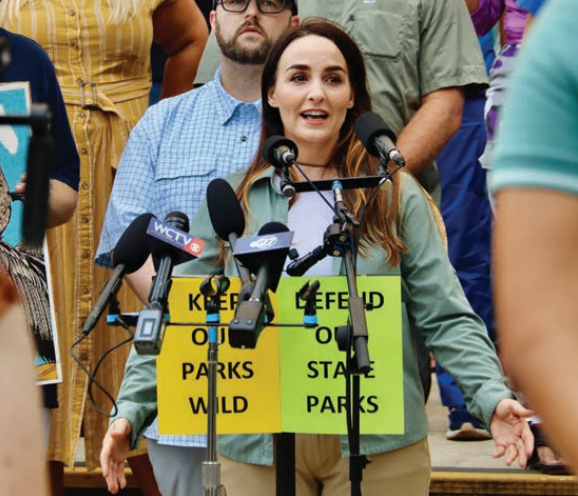CONSERVATION
PRESERVATION
RESTORATION
SAVING OUR NATURAL HERITAGE
CONSERVATION
Protecting Florida’s native plants is at the core of our mission. Through advocacy, research, and partnerships, FNPS works to safeguard rare and endangered species — making sure Florida’s natural heritage continues to grow wild and free. You can be part of the effort to protect the plants that shape our state.
PRESERVATION
Once a natural space is lost, it’s gone for good. That’s why FNPS is dedicated to preserving Florida’s remaining native habitats — from scrub and sandhills to swamps and pinewoods. Together with communities, landowners, and conservation partners, we help secure these living landscapes for the future.
RESTORATION
Florida’s native ecosystems can bounce back — with the right care. FNPS helps lead and support restoration projects that remove invasive species, replant native flora, and return balance to wild spaces. Whether you’re a volunteer or a land steward, there’s always a way to join the work of healing Florida’s landscapes.
EDUCATION
The Florida Native Plant Society empowers people of all ages to understand and protect Florida’s native plants through hands-on learning and accessible resources. From lesson plans and coloring pages to educational videos and workshops, we provide tools that inspire curiosity and conservation action. By fostering connections between people and plants, we cultivate a deeper appreciation for Florida’s unique ecosystems and the role each of us can play in safeguarding them.
POLICY & ADVOCACY
The Florida Native Plant Society works to ensure that Florida’s native plants and natural habitats are protected through sound policy and effective advocacy. We provide science-based guidance to decision-makers and empower citizens to raise their voices for conservation. By championing native plants in legislation and community planning, we help shape a future where Florida’s landscapes remain resilient and ecologically rich.
RESEARCH
The Florida Native Plant Society advances scientific research to deepen understanding of Florida’s native plants and the ecosystems they sustain. Through grants, field studies, and collaborations with scientists and students, we support projects that guide conservation and restoration efforts. By investing in research, we ensure that decisions about Florida’s landscapes are rooted in knowledge, protecting biodiversity for generations to come.
COMMUNITY
The Florida Native Plant Society thrives through a statewide network of local chapters that bring people together to celebrate and protect native plants. Chapters host programs, field trips, plant sales, and restoration projects that connect neighbors with Florida’s unique landscapes. By joining a chapter, members find community, share knowledge, and take meaningful action for conservation close to home.
READY TO GROW YOUR IMPACT?
You don’t need to be a scientist or land manager to play a vital role. There are countless ways to get involved — from hands-on volunteering to advocacy, education, and everyday choices.
Click below to explore how you can help protect Florida’s native plants and wild spaces!






